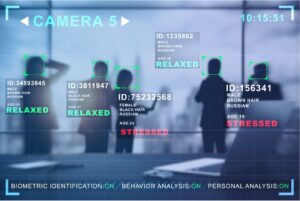Strong passwords are crucial for online security, safeguarding your personal information, accounts, and financial data from unauthorized access and cyberattacks. Strong passwords are an integral part of overall cybersecurity.
Why strong passwords are so important:
1. Protection from Cyber Threats:
- Password Cracking:
Hackers and cybercriminals employ various techniques, including brute-force attacks and dictionary attacks, to guess or crack passwords, and strong passwords make this process significantly harder and more time-consuming. - Credential Stuffing:
Attackers often leverage stolen credentials from one breach to try and gain access to other accounts, making it critical to use unique and strong passwords for each online account. - Phishing and Social Engineering:
Weak or reused passwords are easily exploited in phishing scams, where attackers trick users into revealing their login credentials. Strong passwords, coupled with unique ones for each site, minimize the damage caused by compromised credentials. - Identity Theft:
Cybercriminals can use stolen passwords to impersonate you, access your accounts, and potentially commit identity theft. - Account Takeover:
Cybercriminals can take over someone’s online account by using techniques such as brute force or phishing attacks, and strong passwords make it more difficult for hackers to gain access to your account.
2. Key Concepts for Strong Passwords:
- Length: Aim for passwords of at least 12 characters or longer.
- Complexity: Combine uppercase and lowercase letters, numbers, and special characters.
- Uniqueness: Use different passwords for every important online account, including email, banking, social media such as X & Instagram, and shopping accounts.
- Avoid Personal Information: Never use passwords that include your birthday, pet names, or other easily guessable information.
- Password Managers: Consider using a password manager to help generate, store, and retrieve strong, unique passwords securely.
- Two-Factor Authentication: Enable two-factor authentication (2FA) whenever possible, adding an extra layer of security to your accounts. There have been cases of attackers using voicemail to gain entry to private accounts, usually by calling in the middle of the night local time when most phones ringtones are on silent, vibrate or the phone is on do not disturb mode.
Password Policy: For businesses, have a password policy in place to protect your business and employees from cyberattacks.
written with assistance from google generative AI






